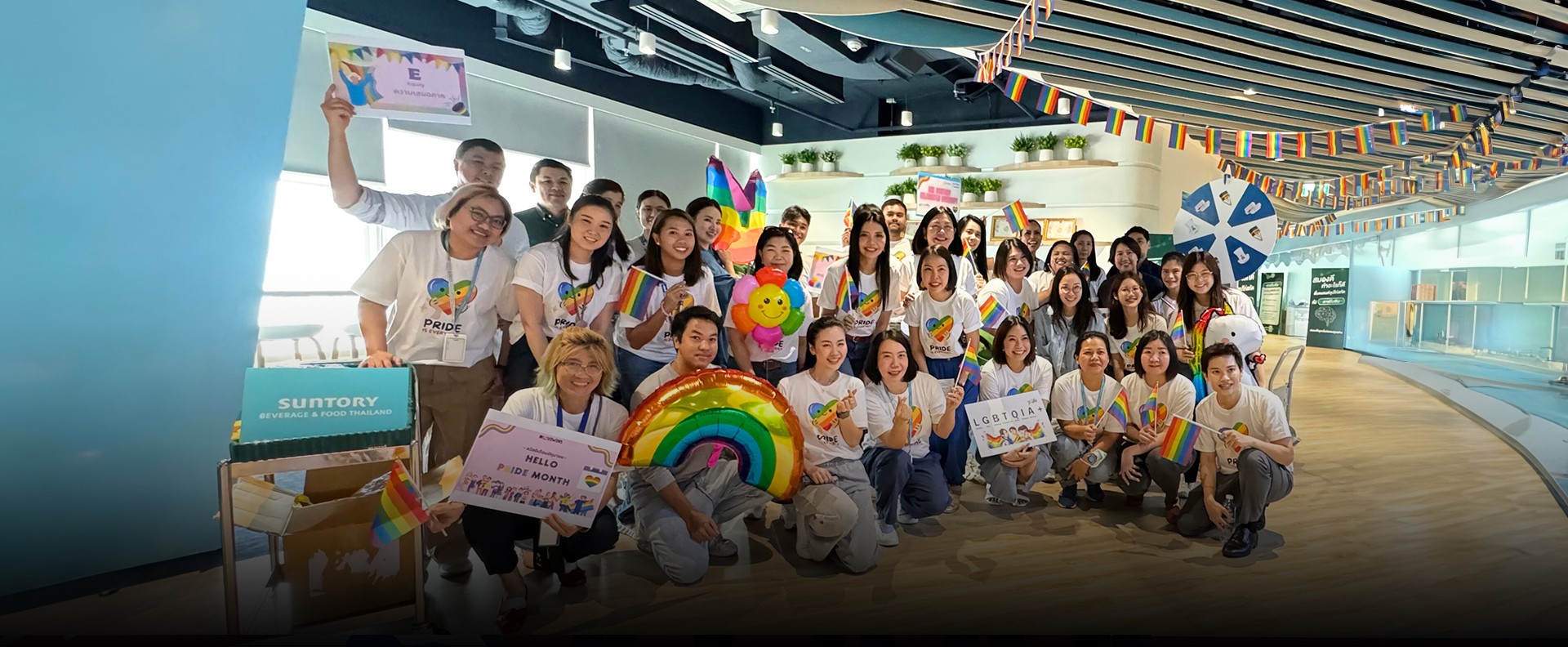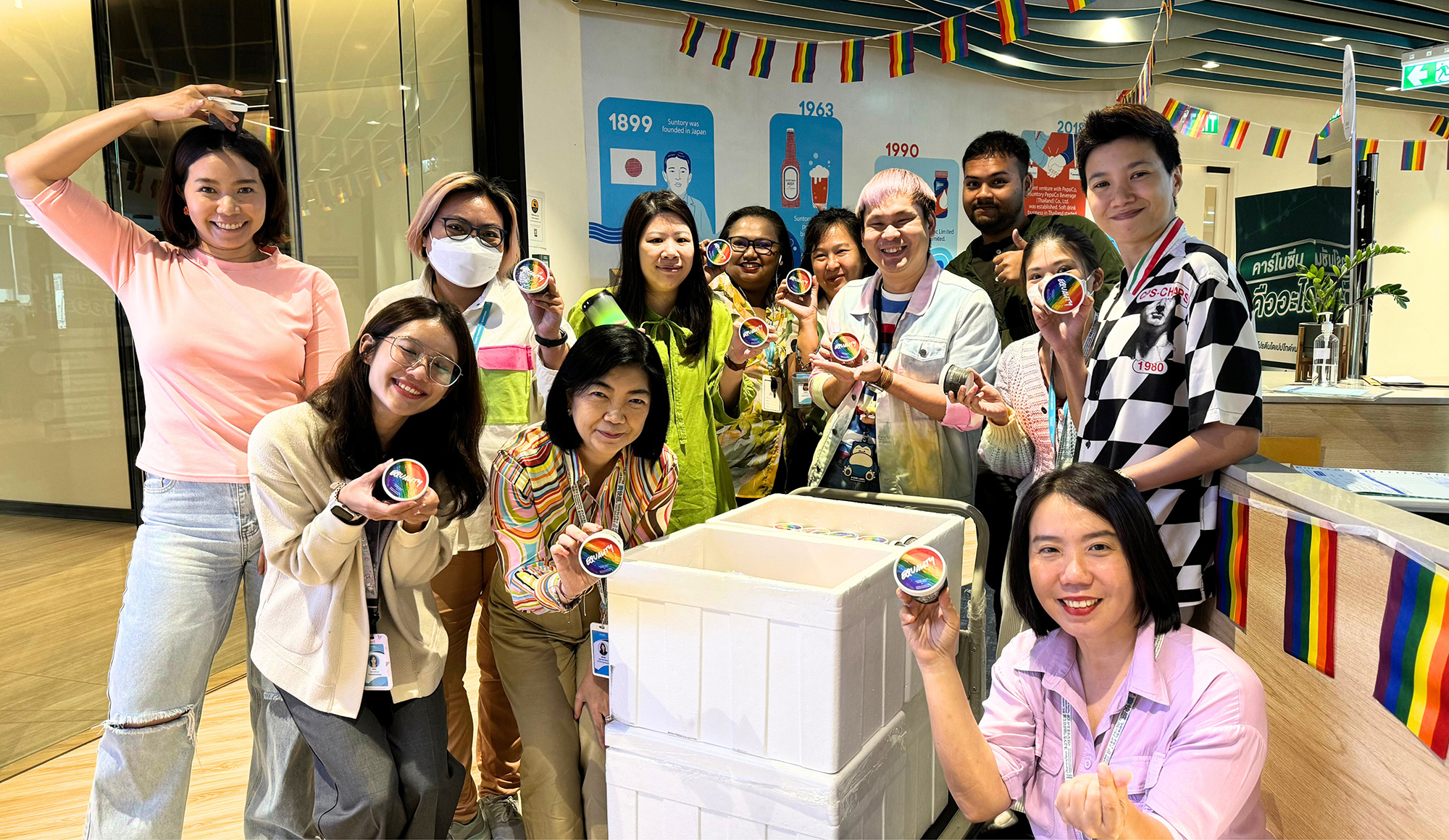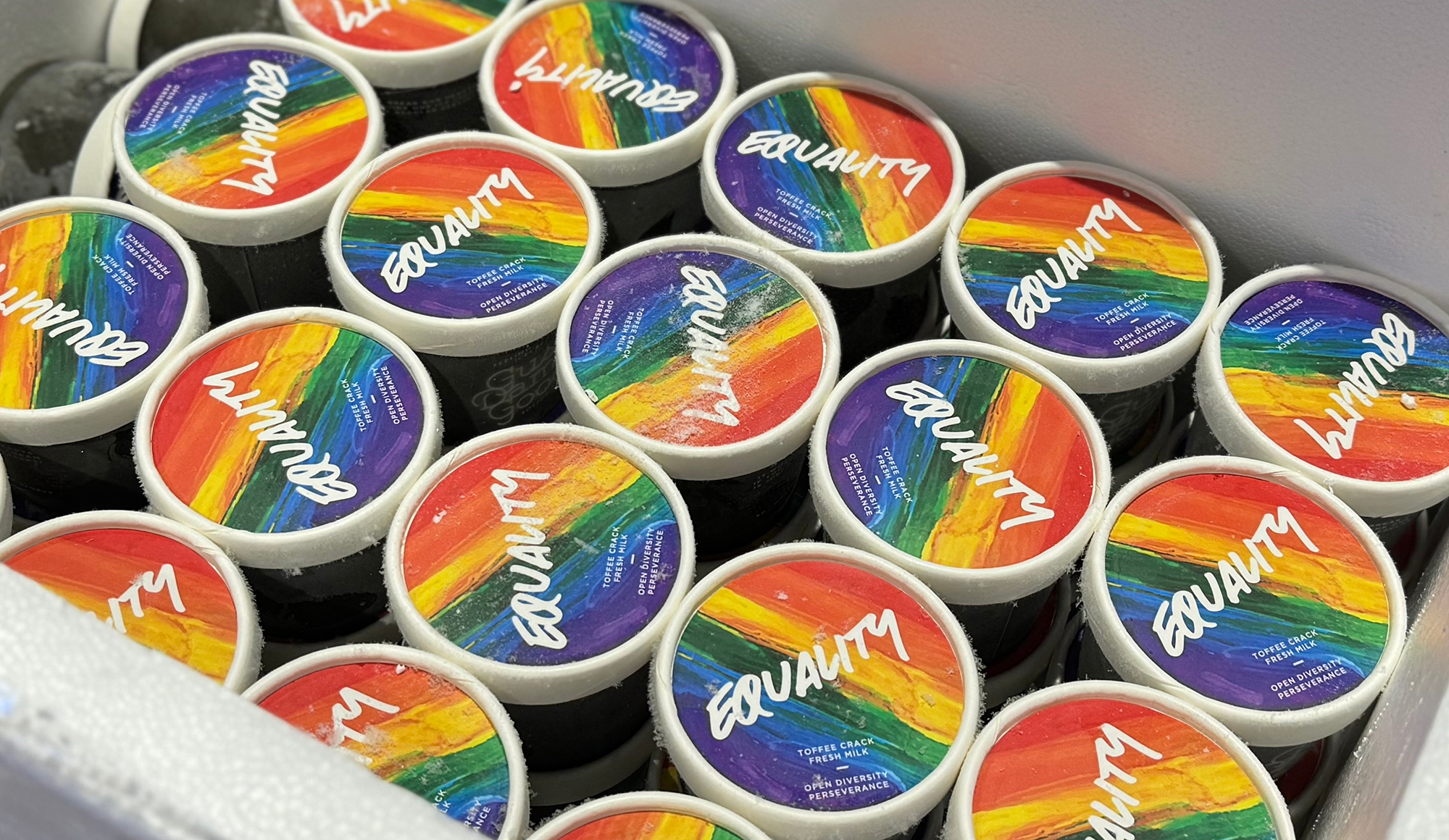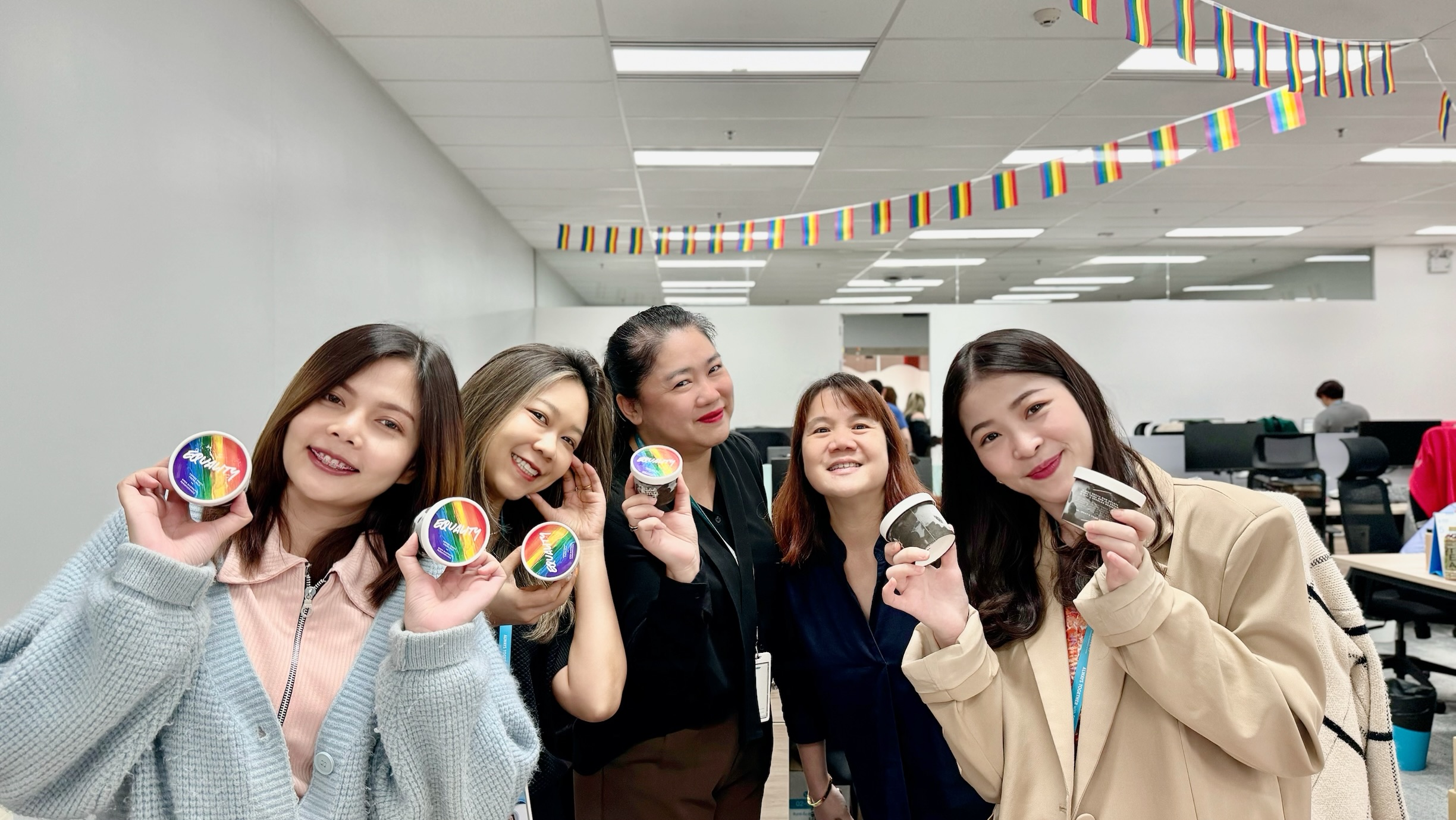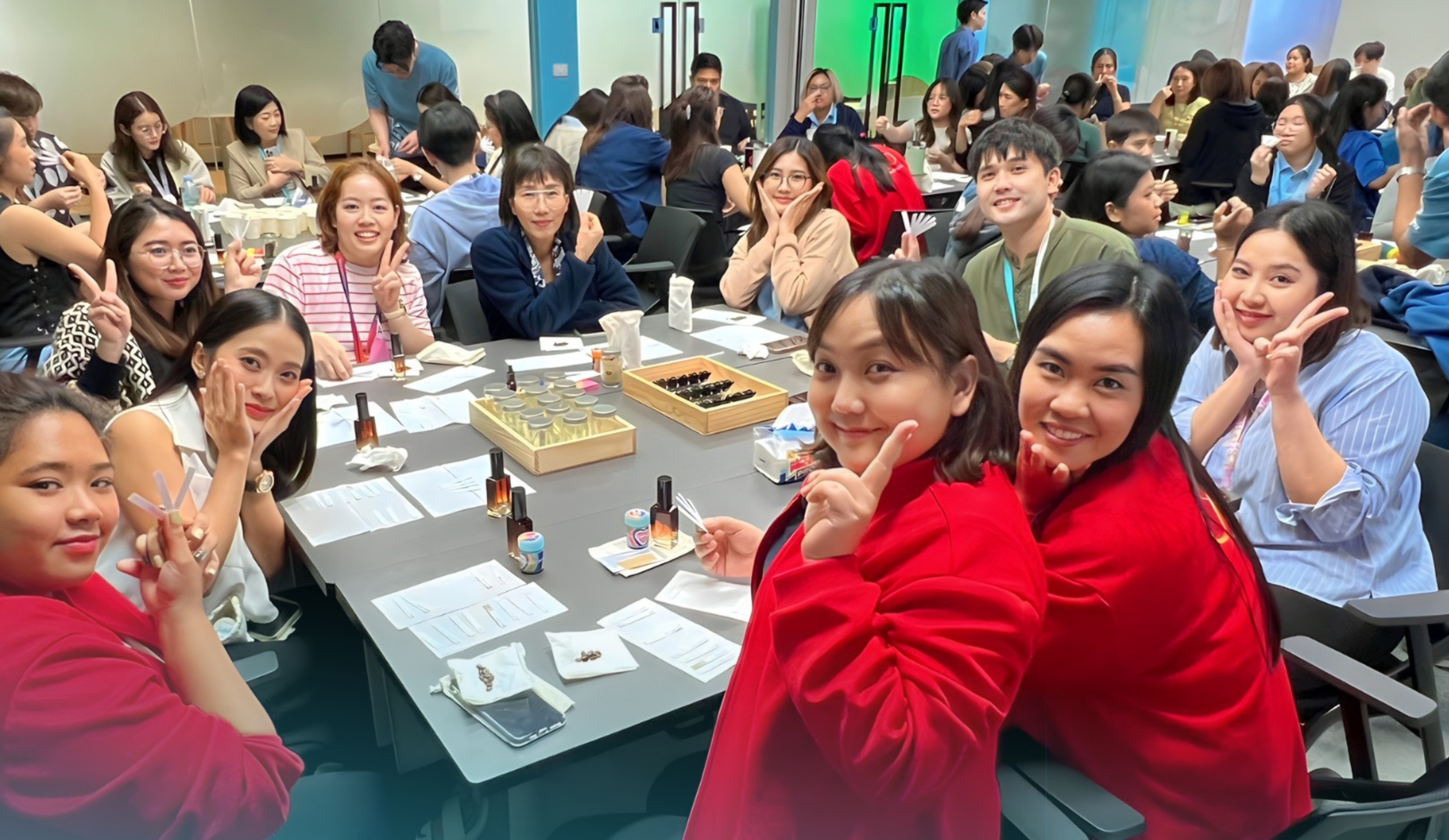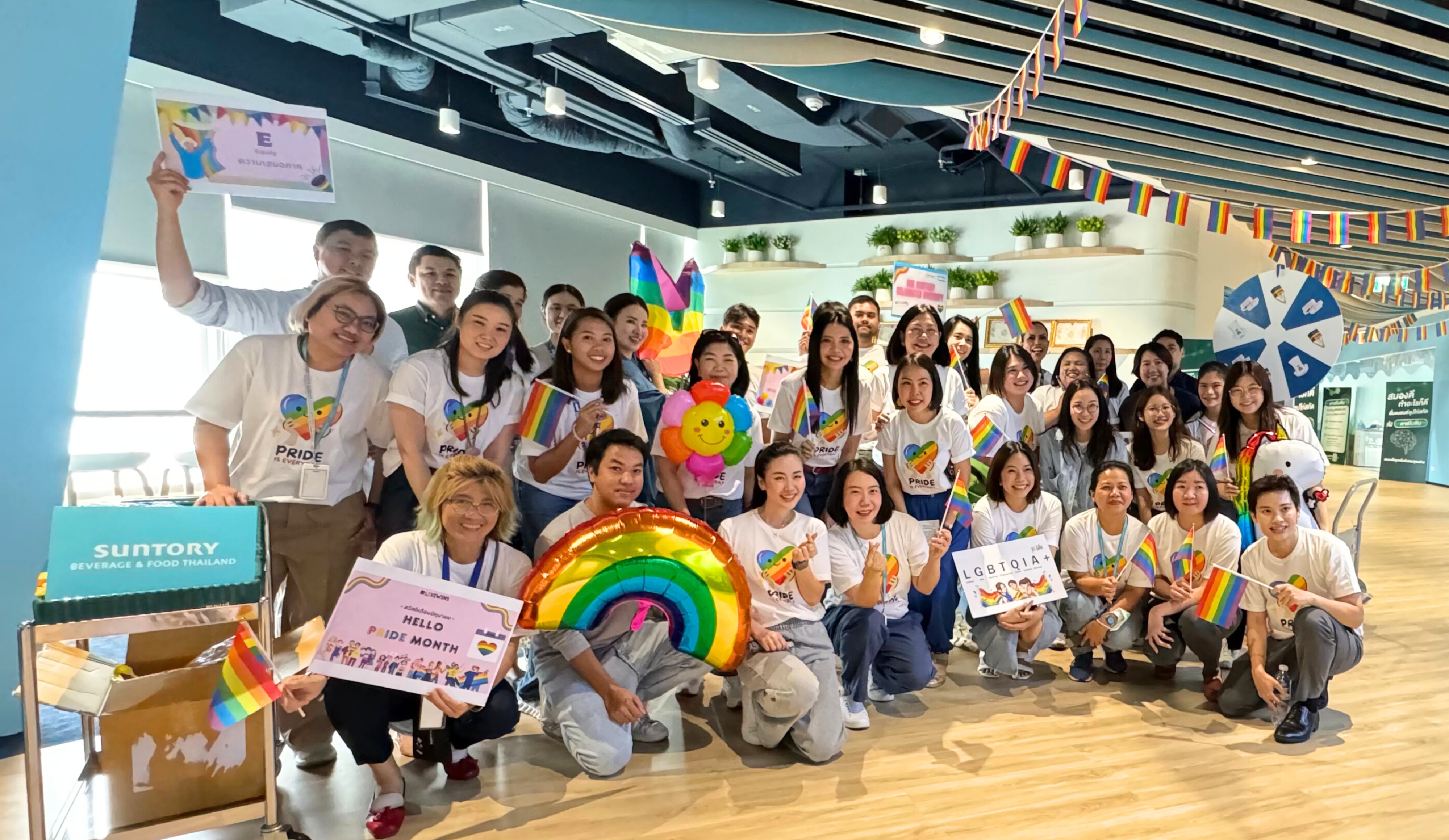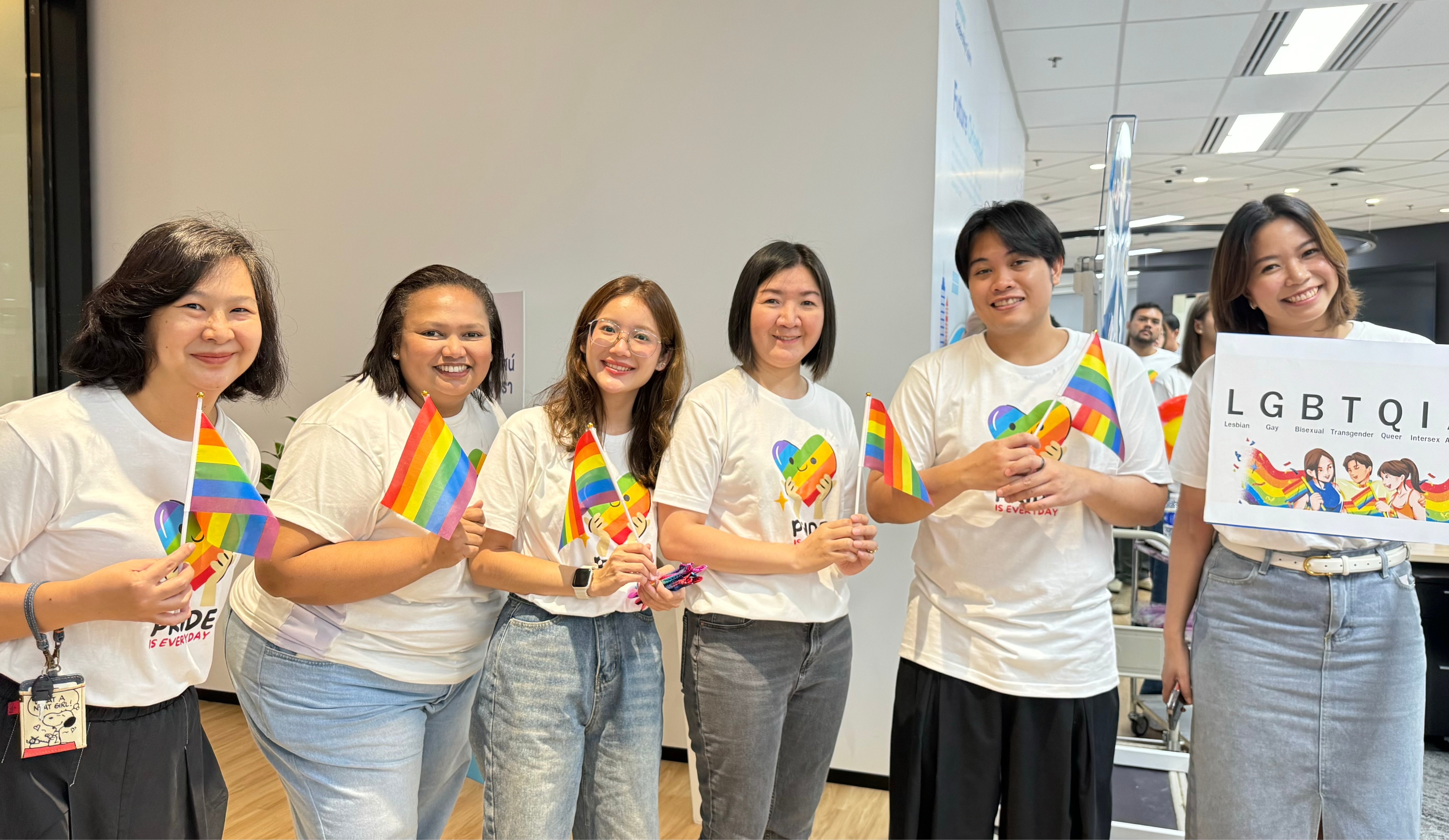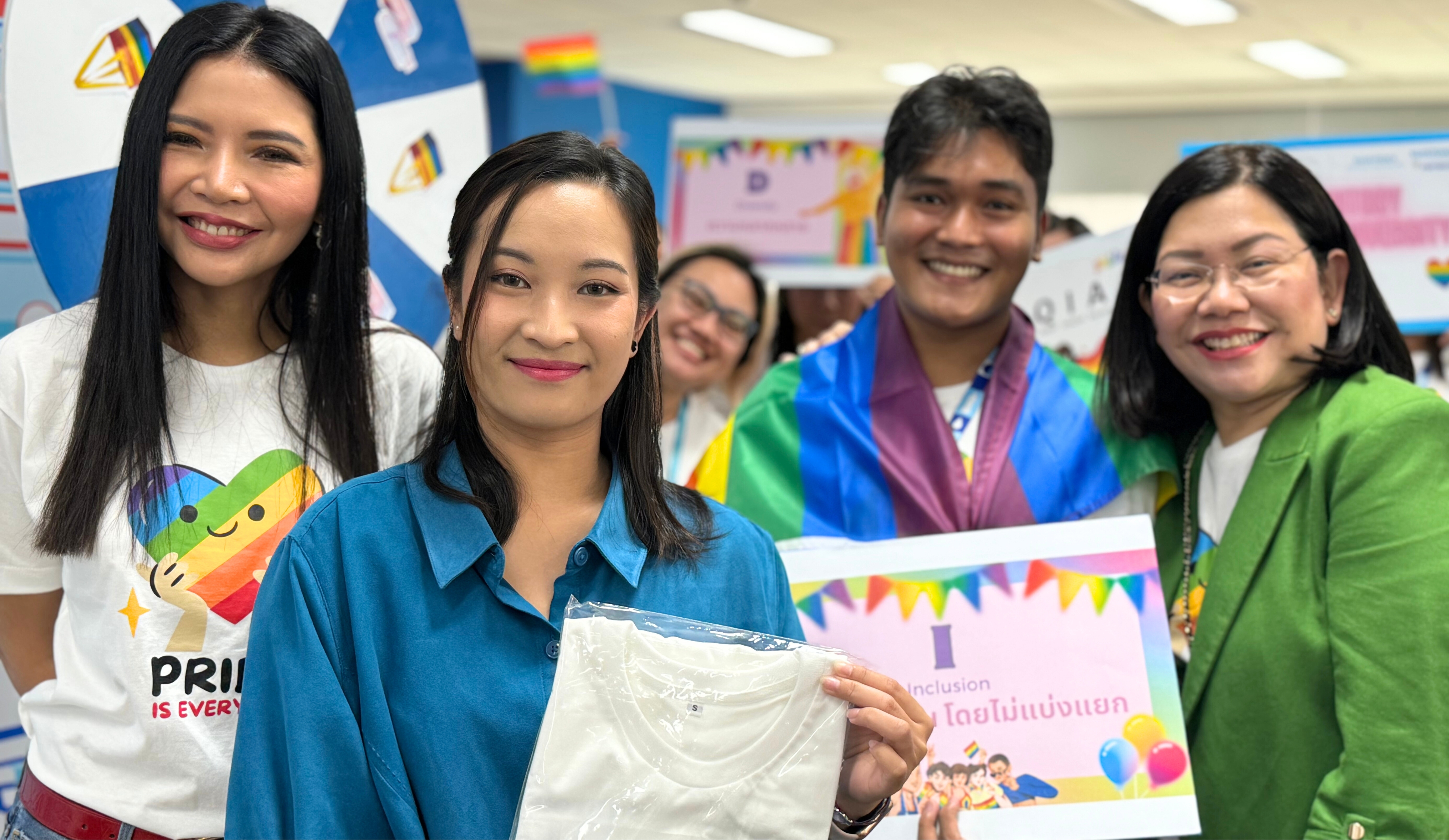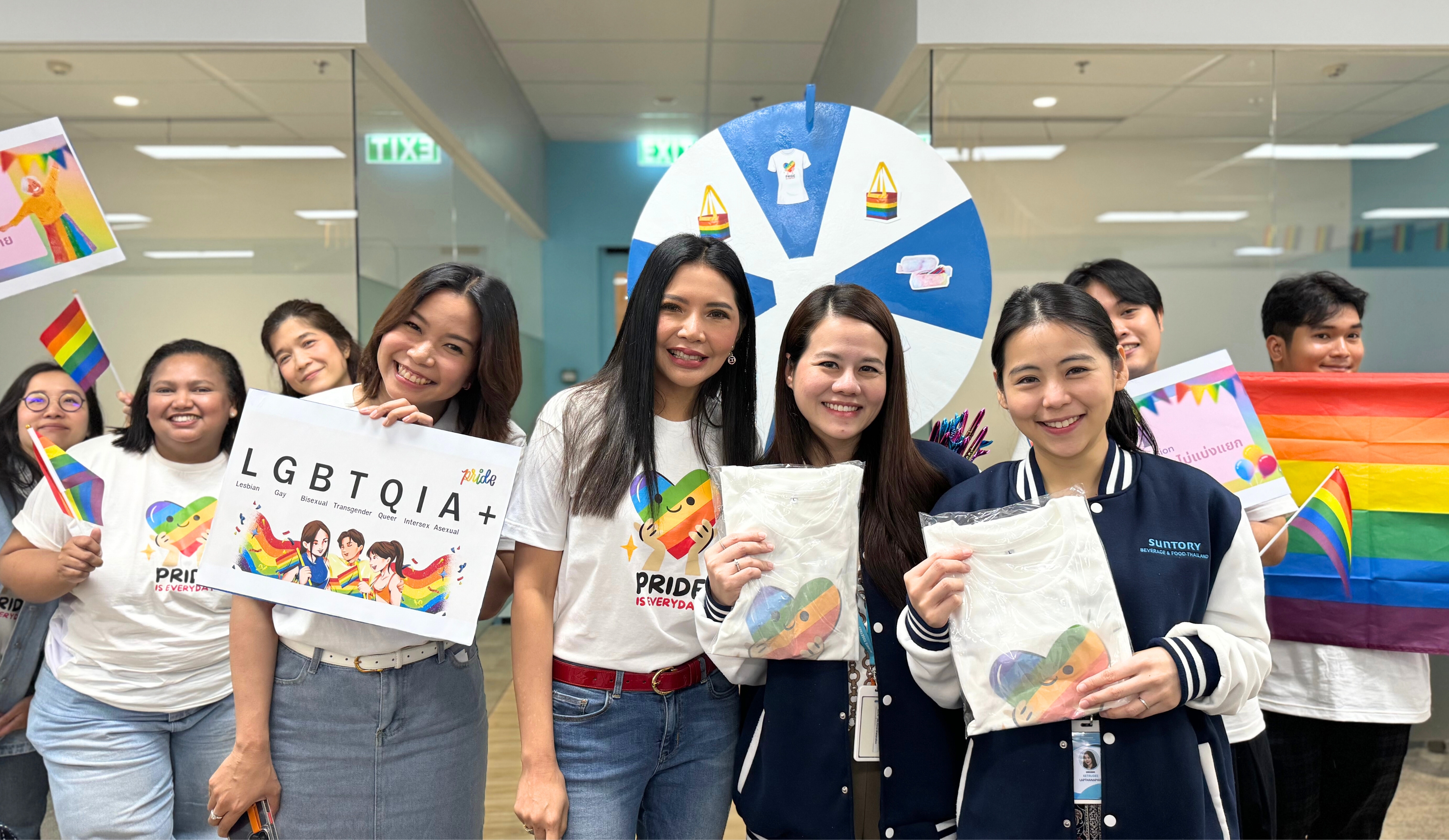To build One Suntory Winning Spirit and promote collaboration and teamwork among Suntory Beverage & Food (Thailand) and Suntory PepsiCo Beverage (Thailand), the People & Culture team organized ‘One Suntory Celebrates Diversity Troop’, playing games, and handing out rainbow-colored premium giveaways to all employees to emphasize the celebration of the month.
A troop, one of the highlighted PRIDE month activities under One Suntory, represents our shared commitment to the Suntory Leadership Spirit of “Better Together” where diverse perspectives are celebrated, and inclusive culture is fostered, leveraging collective power and strong collaborations across teams.
The troop was led by Khun Natthanicha Worawannaseth, SVP Corporate Function of Suntory Beverage and Food, and Khun Piengchit (Ja) Sriprasart, Chief People & Culture and Corporate Affairs Officer of Suntory PepsiCo Beverage. They later expressed appreciation to all employees for their active participation in PRIDE month activities, highlighting both companies’ dedication to advancing Diversity, Equity, and Inclusion (DEI), ensuring that everyone in the companies is seen, heard, valued, respected, and empowered.
